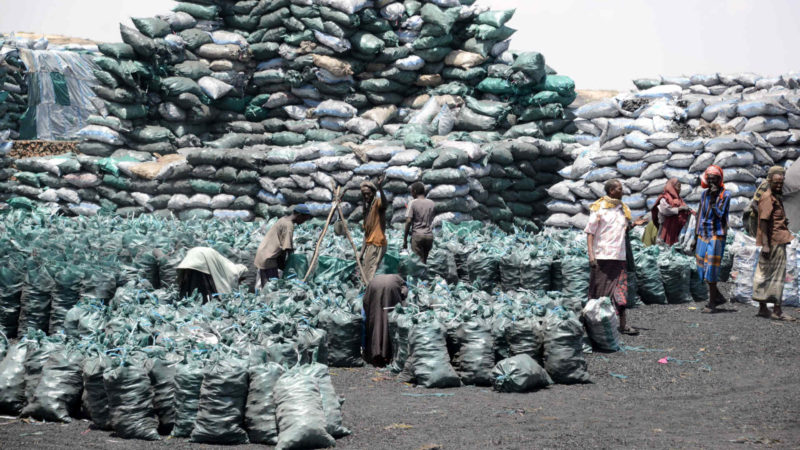At the opening of a two-day, UN-supported conference on charcoal on Monday, May 7, 2018 in Mogadishu, the Federal Government of Somalia has called for international, African and Gulf States cooperation in halting the illegal export of charcoal from the country. The export of charcoal from Somalia has been banned, both by a 2012 United Nations Security Council resolution and by the Somali Government, due to its destructive effect on the environment and its exacerbation of conflict and humanitarian crises.

An estimated 8.2 million trees were cut down for charcoal in Somalia between 2011 and 2017, increasing land degradation, food insecurity and vulnerability to flooding and drought. Over 80 percent of charcoal produced in Somalia is exported to Gulf States and neighbouring countries. Illegal trade in charcoal is recognised as a key contributor to insecurity in Somalia, providing a major source of funding for militias, terrorist groups, and other actors linked to conflict, who illegally tax exports.
In his opening address, the Deputy Prime Minister of Somalia, Mahdi Mohamed Guled, reaffirmed the Somali government’s commitment to halting illegal trade of charcoal, and providing alternative livelihood and energy options. He also called for urgent action and support from the international community and countries that are importing charcoal.
“We need a holistic response to address the issues of charcoal in Somalia. Both the demand and supply side have to be tackled – to do this we need cooperation to implement the UN Security Council Resolution and ensure the environmental, economic and human losses that happen because of illegal charcoal trade are curbed,” said the Deputy Prime Minister.
“The environmental destruction brought on by the charcoal trade contributes to drought, flooding, the loss of livelihoods and increase in food insecurity. Together with conflict, this exacerbates the humanitarian situation in Somalia,” said the Deputy Special Representative of the Secretary-General for Somalia, Peter de Clercq. “But due to high levels of poverty in Somalia and lack of opportunities, many are forced to turn to unsustainable and illegal livelihoods, such as charcoal production. The people of this country deserve better”.
Juliette Biao Koudenoukpo, UN Environment Regional Director for Africa, said regional partnership is key to stopping the unsustainable production, use and export of charcoal in Somalia. “UN Environment and its partners are supporting the Government of Somalia to develop sound policy frameworks to support the ban and find alternatives to charcoal,” she said.
Participants at the event, which concludes on Tuesday, are expected to develop a concrete road map for action, including enforceable regional policies, to halt charcoal trade, as well as its unsustainable production and use within Somalia. The high-level summit is supported by the United Nations Development Programme (UNDP), UN Environment, and the Food and Agricultural Organisation of the United Nations (FAO), with funding from Sweden, the European Union and Italy.
